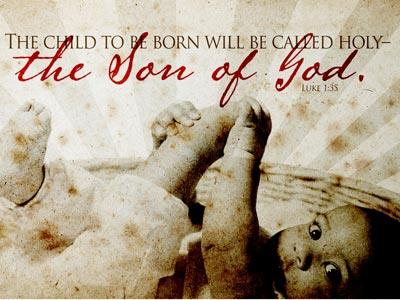-
A Baby Maker Series
Contributed by Glenn Pease on Mar 20, 2021 (message contributor)
Summary: It has been a major issue all through history-how can we get a baby? And this has to be a major issue in the realm of the spirit as well. We need to want to have babies for Jesus as desperately as Paul. He gave his life and suffered greatly in order to have babies for Jesus.
Men are trying to have babies. Some are experimenting with the idea of surgically implanting an
embryo into the male and then surgically removing the child when it is grown enough to love on its
own. But there are things even more bizarre. In 1978 science writer David Rorvik wrote In His
Image. It is about an American millionaire who goes by the code name Max. He wanted a child
created from one of his body cells. In other words, he wanted to be cloned. He found a willing
scientist and set up the lab, and the attempt was successful. Max is now the proud father of a son
make in his image. He is a carbon copy of his father, and has only one genetic parent.
This stirred up a great controversy that went all the way to the U.S. Congress, but nobody knows
if it is was a hoax, or if it was true. Nobel Prize winning geneticist Joshua Lederberg said of cloning,
"There is nothing to suggest any particular difficulty about accomplishing this in mammals or
man.." In other words, it may very well be a reality that a man has had his own baby. Hoax or not, it
reveals just how desperate people become to reproduce. There are so many infertile couples who
want babies that they have created a whole new world of baby making science. Not a day goes by
that there is not a baby conceived outside the human body. In vitro fertilization is conceiving of a
baby in glass. It is often called a test tube baby.
The first such baby was born on July 25, 1978 in England. Until Louise Brown was born every
human being had begun their existence deep in their mother's body, but Louise began in a glass dish.Yes Solomon, there is something new under the sun. But he was right in that the ingredients are the
same and the process the same. They had to have a mother's egg and a father's sperm in that dish or
she never would have been born. The dish was merely an artificial womb. All life demands an egg
and a seed, or fertility and verility. This is true for those born into the family of God as well. In our
last message we looked at fertility and the need for the proper soil for sowing the seed. Now we
want to look at the second element which is-
II. VIRILITY.
All the fertile eggs in the world will not produce a baby without seed, and so fertility and virility
are the twin elements that must come together to make any baby possible. Vir is French for man, and
virility means masculine and manly vigor. In the spiritual realm it applies to both sexes for in Christ
all are part of the bride of Christ and can reproduce.
When we looked at fertility we looked at the nature of the people Paul preached to. They were
the synagogue people who loved the same God and the same Bible that Paul did. They were open to
new light on the Messiah and so were fertile soil. Now we are focusing on the seed which must
penetrate that fertile soil to bring forth babies for the kingdom of God. Fertile soil will not
necessarily bring forth fruit without vigorous effort. When Paul found fertility he still had to
demonstrate virility. He had to go through tough labor to bring forth new life.
We look at verse one and it sounds like an afternoon stroll in the park as Paul passed through
Amphipolis and Appellonia. But it was not so, for it was 33 miles from Philipi to Amphipolis, and
this was a journey taken after Paul and Silas had been beaten and spent the night in prison where
they were up most of the night. Like so many mothers do, Paul gave birth to babies for the kingdom
in the middle of the night. The Philippian jailer and his family believed in Jesus and were baptized.
It was a hard night and after some refreshment in the home of Lydia they took off for a new
adventure. It was just like the old stories of the women who would be working in the fields. Her
baby would come and she would lay down in the grass for a brief rest after her delivery, and then get
up and keep on working. This is what we see Paul doing in the realm of having babies for Jesus.
After 33 miles to Amphipolis they had another 30 miles to Apollonia, and then another 37 to
Thessolonika. It was a hundred mile journey. This is not much in our day but it was no small effort
for Paul, and it took the better part of the week. Paul had to spend three Sabbaths in reasoning and

 Sermon Central
Sermon Central



